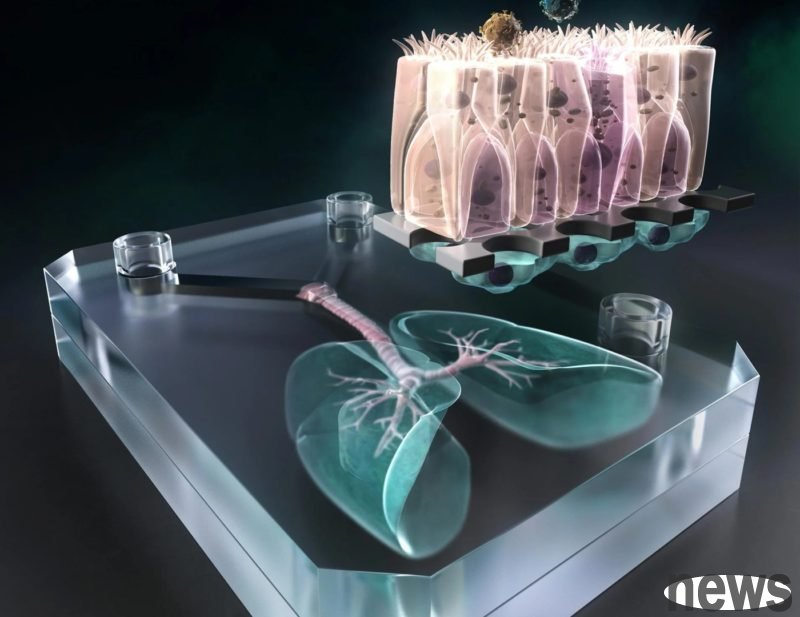After the global impact of COVID-19, research on respiratory system diseases has become more important. Kyoto University recently developed a pulmonary chip microphysiology system that accurately simulates the structures of various regions of the lu...

After the global impact of COVID-19, research on respiratory system diseases has become more important. Kyoto University recently developed a "pulmonary chip" microphysiology system that accurately simulates the structures of various regions of the lung, including the upper respiratory tract (proximal) and alveoli (far-end). The core is using homologous inducing pluripotent ductile cells (iPSCs), allowing researchers to better understand how respiratory viruses affect specific regions and transcend traditional animal models and simple cell culture restrictions.
The new system aims to study the effects of respiratory viruses on the lungs in depth. Chief author Sachin Yadav said: "iPSC-derived lung wafers can mimic the response of the same proximal and remote lung regions to respiratory viral infection." Not only can the mechanism of organizational and viral unique disease more accurately, but it can also evaluate the effectiveness of drugs, which has important implications for possible epidemic control in the future.
Ryuji Yokokawa, the leader of the experiment room, pointed out that the results are not limited to the lungs, and other organ and multi-organ system models can also be developed to promote organ interactions. "Certainly copying host response changes to different viruses and lung regions will enhance our understanding of new viral viruses and promote early drug filtering."
Researcher Shimpei Gotoh emphasized that the integration of iPSCs into microphysiological systems is obvious, and these cells can promote customized medical and homologous model applications. The potential application of lung chip systems is not limited to viral infection, and patients can also use special iPSCs to study other diseases.
The article was published in the journal "Natural Biological Engineering" on the 16th, and was supported by Japanese scientific and technical institutions, Japanese academic excitement associations and Japanese medical research and development institutions.
Scientists Develop “Lung-on-a-Chip” That Could Help Stop the Next Pandemic Revolutionizing respiratory health research: “commercially-available lung-on-a-chip and air-liquid interface systems” Recent research breakthroughs in lung-on-chip technology Scientists developing microchips with brain and lung tissue to study viral neuroinflammation Human Organs-on-Chips